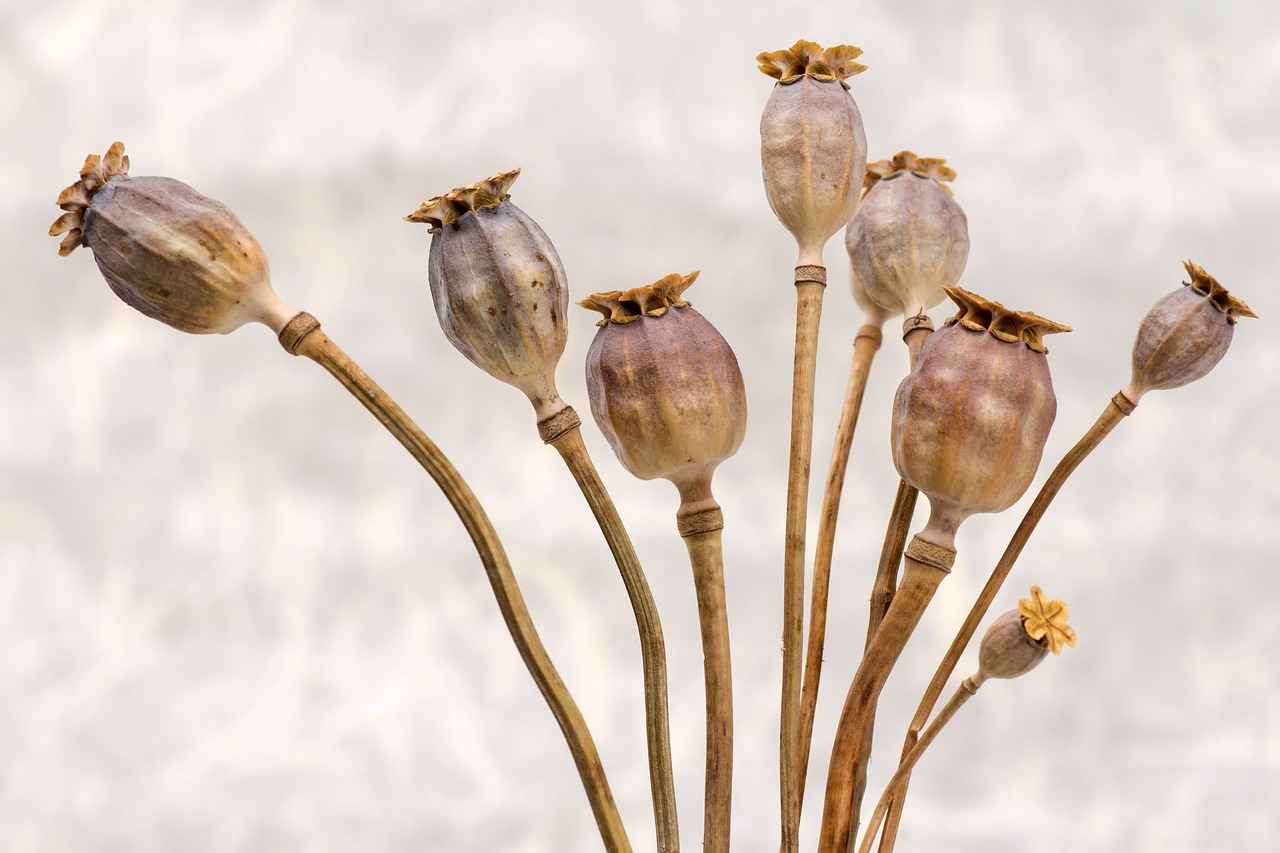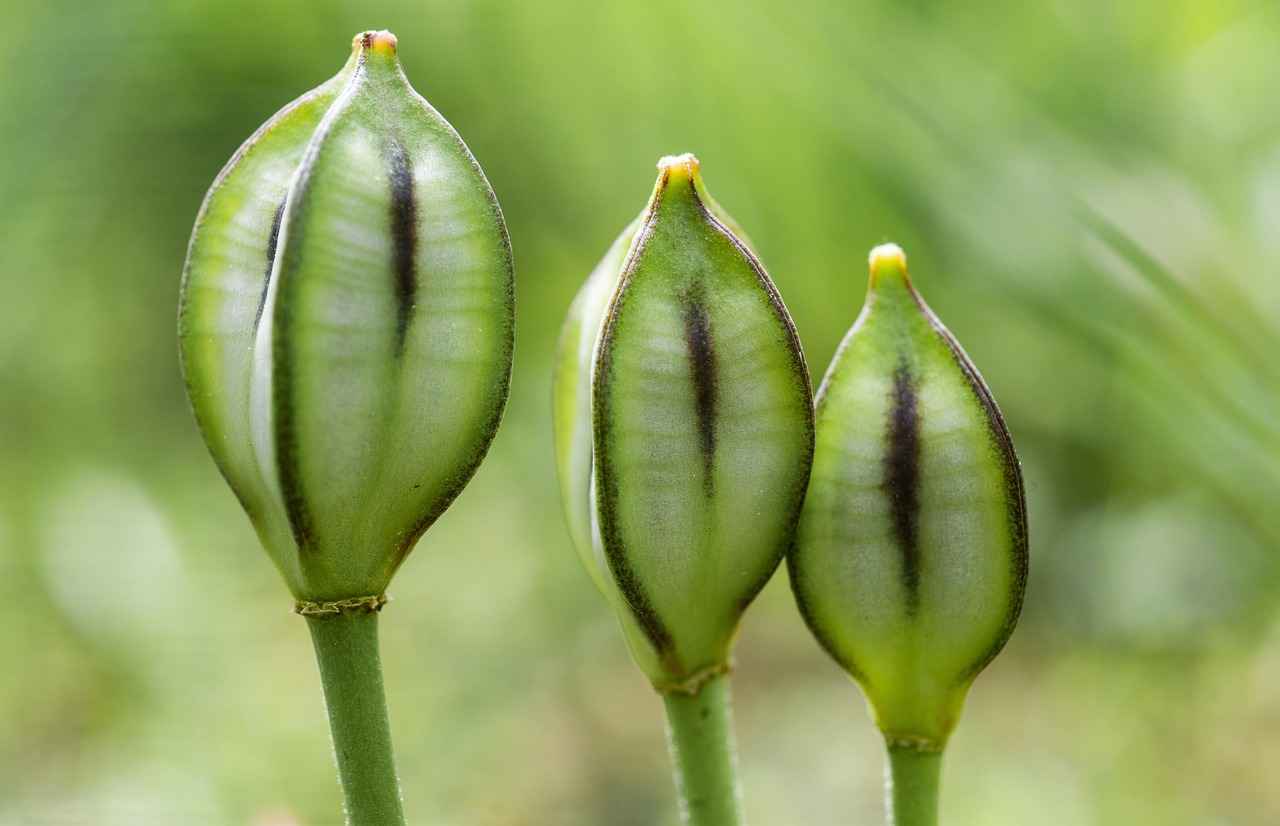Sprouted chia seeds have gained popularity in the health community due to their enhanced nutritional profile compared to regular chia seeds. This article delves into the differences between these two types of seeds, focusing on their health benefits, preparation methods, and how to incorporate them into your daily diet.
Sprouted chia seeds are essentially regular chia seeds that have undergone a germination process. This involves soaking the seeds in water, allowing them to sprout and develop tiny shoots. The process not only enhances their nutritional value but also makes them easier to digest. This section will explore the significance of sprouting and how it transforms chia seeds into a superfood.
When comparing the nutritional content of sprouted and regular chia seeds, several differences emerge. Sprouted chia seeds often contain higher levels of vitamins and minerals, along with increased antioxidant properties. Below are some key nutrients that show marked improvement through the sprouting process:
- Vitamin C: Sprouted chia seeds can have significantly higher vitamin C levels, which is essential for immune function.
- B Vitamins: The sprouting process enhances the bioavailability of B vitamins, crucial for energy metabolism.
- Antioxidants: Sprouting boosts the overall antioxidant levels, which can help combat oxidative stress.
Incorporating sprouted chia seeds into your diet can yield numerous health benefits. These seeds are known for:
- Improved Digestibility: The sprouting process breaks down anti-nutrients, making them easier on the digestive system.
- Enhanced Nutrient Absorption: Sprouted seeds allow for better absorption of essential nutrients, supporting overall health.
- Increased Energy Levels: With more accessible nutrients, sprouted chia seeds can provide a quick energy boost.
Preparing sprouted chia seeds is a straightforward process that can be done at home. Here’s a step-by-step guide:
1. Rinse 1 cup of chia seeds under cold water.2. Soak the seeds in water for 4-6 hours.3. Drain the water and place the seeds in a sprouting jar or tray.4. Rinse the seeds twice daily for 3-5 days until small sprouts appear.5. Once sprouted, store them in the refrigerator and use within a week.
There are many delicious ways to add sprouted chia seeds to your meals. Consider these ideas:
- Add them to smoothies for a nutrient boost.
- Mix into salads for added crunch and nutrition.
- Incorporate into baked goods like muffins or bread.
While sprouted chia seeds offer many health benefits, it’s important to be aware of potential risks. Improper sprouting can lead to bacterial contamination. To mitigate these risks, ensure that you:
- Use clean equipment and fresh seeds.
- Rinse seeds thoroughly to reduce bacterial growth.
Additionally, some individuals may experience allergic reactions to chia seeds. If you are new to consuming chia, start with small amounts to monitor any sensitivities.
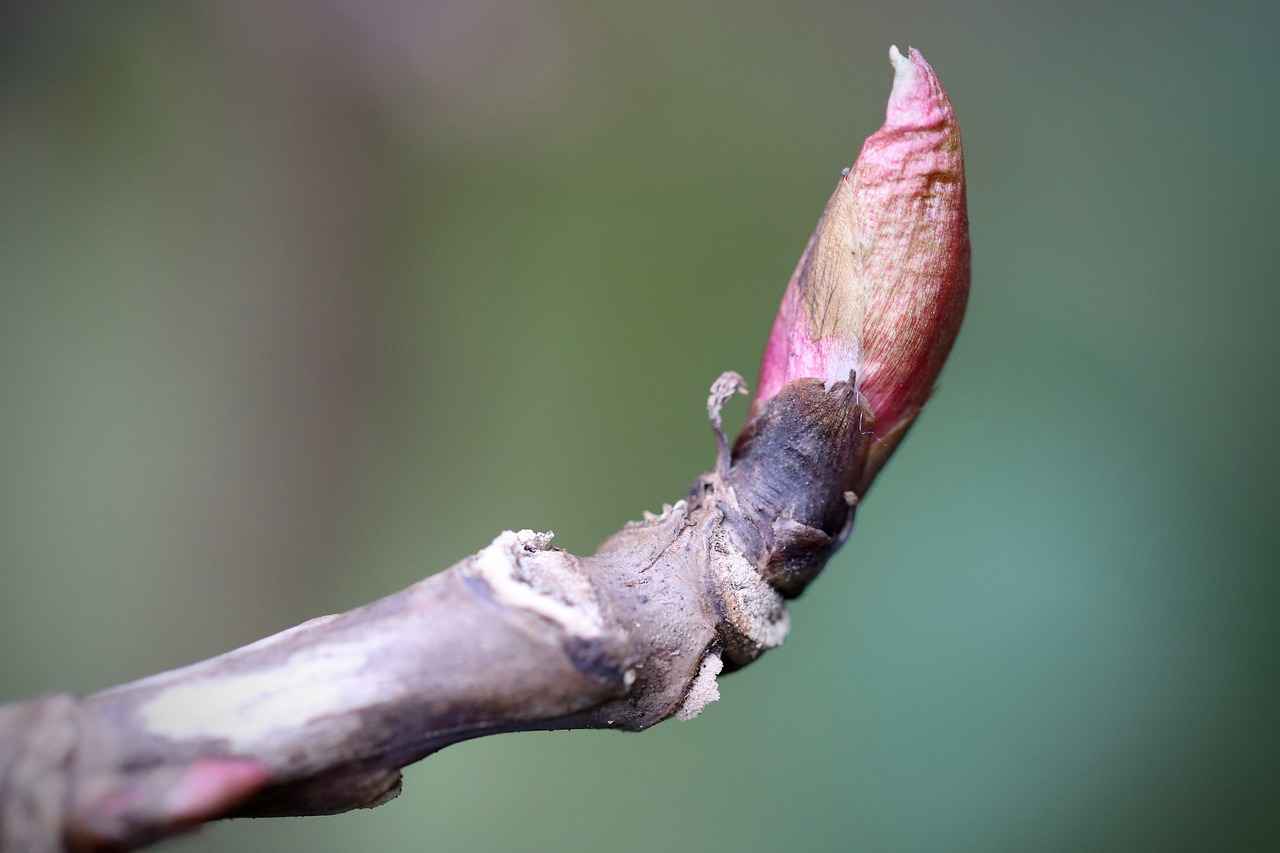
What Are Sprouted Chia Seeds?
Sprouted chia seeds are a fascinating variation of the traditional chia seeds that many people are familiar with. They undergo a process of soaking and germination, which significantly enhances their nutritional profile, making them an increasingly popular choice among health enthusiasts. This section will explore the intricacies of the sprouting process and why it is essential for maximizing the benefits of chia seeds.
To understand what sprouted chia seeds are, it is crucial to recognize their origin. Regular chia seeds, derived from the Salvia hispanica plant, are rich in omega-3 fatty acids, fiber, and protein. However, when these seeds are soaked in water, they begin to germinate, a process that activates enzymes and increases the bioavailability of nutrients. This transformation not only makes the seeds easier to digest but also enhances their overall nutritional content.
The sprouting process typically involves a few simple steps:
- Soaking: Begin by rinsing the chia seeds and soaking them in water for a few hours, allowing them to absorb moisture.
- Germination: After soaking, drain the excess water and place the seeds in a sprouting jar or a suitable container. Rinse them twice a day to keep them moist.
- Harvesting: Within a few days, tiny sprouts will emerge, indicating that the chia seeds are now sprouted and ready for consumption.
During the sprouting process, several key changes occur. For one, the levels of certain vitamins and minerals are amplified, making sprouted chia seeds a more nutrient-dense option. For instance, vitamins such as vitamin C and various B vitamins see a notable increase, contributing to better immune function and energy metabolism.
Moreover, the sprouting process significantly boosts the antioxidant content of chia seeds. Antioxidants are vital for combating oxidative stress in the body, which can lead to chronic diseases. By consuming sprouted chia seeds, individuals can enhance their antioxidant intake, potentially lowering their risk of conditions such as heart disease and cancer.
Another critical aspect of sprouted chia seeds is their improved digestibility. The soaking and germination process breaks down anti-nutrients, such as phytic acid, which can inhibit the absorption of minerals. As a result, sprouted chia seeds allow for better nutrient absorption, making them an excellent addition to a balanced diet.
Incorporating sprouted chia seeds into your meals is easy. They can be added to smoothies, salads, or even baked goods, providing a nutritious boost without altering the flavor significantly. Their versatility makes them an ideal ingredient for anyone looking to enhance their diet with nutrient-rich foods.
In conclusion, sprouted chia seeds represent a remarkable evolution of the traditional chia seed, offering enhanced nutritional benefits and improved digestibility. By understanding the sprouting process and its significance, individuals can make informed choices about incorporating these superfoods into their diets.
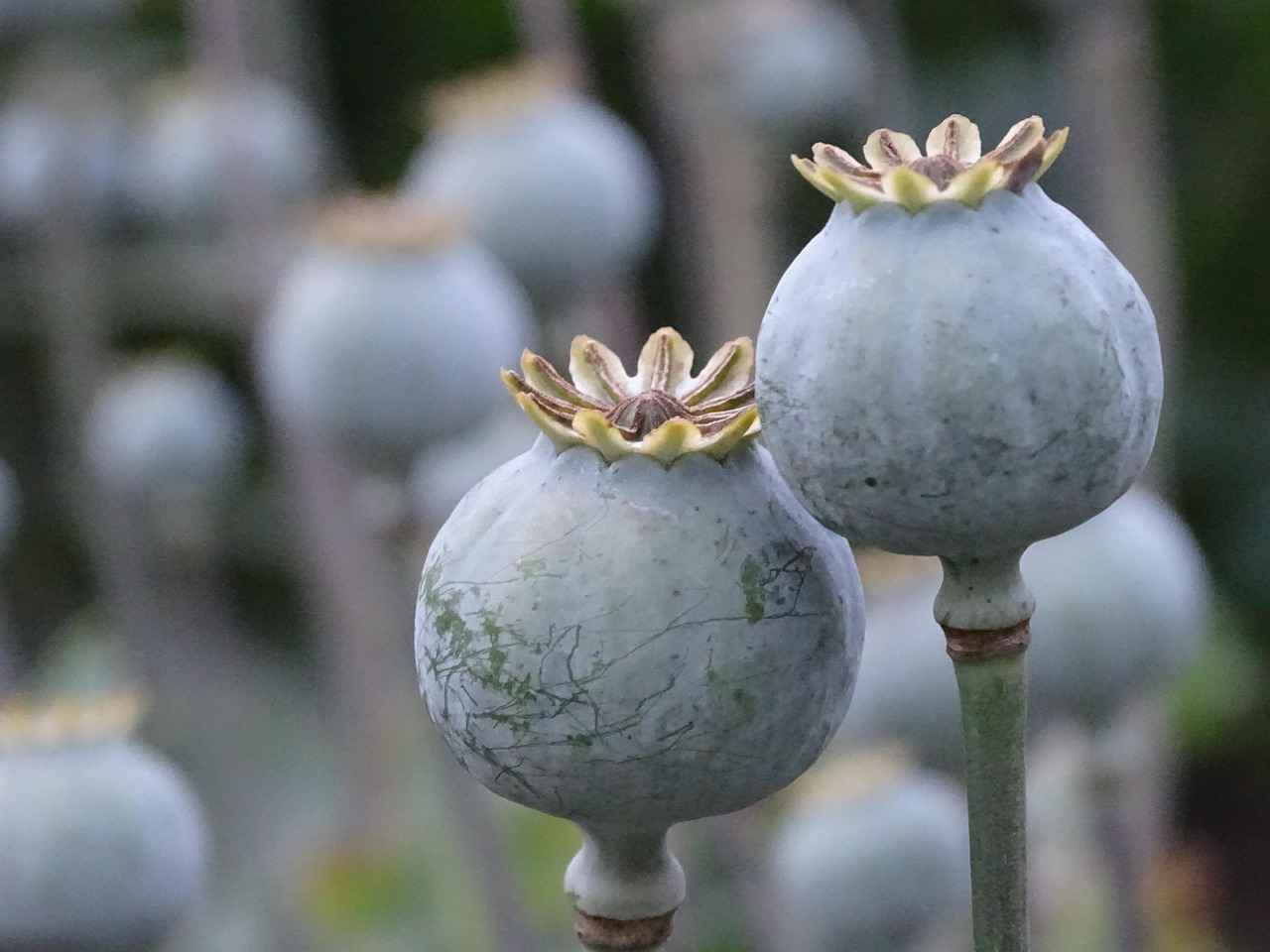
How Do Sprouted Chia Seeds Compare Nutritionally?
When it comes to nutritional value, sprouted chia seeds and regular chia seeds offer unique benefits that can significantly impact your health. Understanding these differences is essential for making informed dietary choices. This section will explore the nutritional comparisons between sprouted and regular chia seeds, highlighting the key nutrients and their health implications.
Sprouted chia seeds are known for their enhanced nutritional profile compared to their unsprouted counterparts. The sprouting process involves soaking the seeds in water, allowing them to germinate, which can lead to increased concentrations of vital nutrients. Below, we will delve into the specific vitamins, minerals, and antioxidants that are often found in greater abundance in sprouted chia seeds.
One of the most notable differences between sprouted and regular chia seeds lies in their vitamin and mineral content. Sprouted chia seeds typically contain higher levels of:
- Vitamin C: Essential for immune function and skin health, sprouted chia seeds can provide a boost in this antioxidant vitamin.
- B Vitamins: Important for energy metabolism, sprouted seeds may have enhanced levels of B vitamins, including B1 (thiamine), B2 (riboflavin), and B3 (niacin).
- Calcium and Magnesium: These minerals are crucial for bone health and muscle function, and sprouted chia seeds often offer improved bioavailability.
Antioxidants play a significant role in protecting the body from oxidative stress and inflammation. Research suggests that sprouting increases the antioxidant capacity of chia seeds. This enhancement can lead to:
- Better protection against chronic diseases, such as heart disease and cancer.
- Improved overall health through the reduction of free radicals in the body.
The increased levels of antioxidants in sprouted chia seeds make them a valuable addition to your diet, potentially offering greater health benefits than regular chia seeds.
Protein is another essential nutrient found in chia seeds. While both sprouted and regular chia seeds are excellent sources of plant-based protein, sprouted seeds may provide a slight edge due to:
- Improved digestibility, making it easier for the body to absorb amino acids.
- Higher protein availability, which can be beneficial for muscle repair and growth.
Both types of chia seeds are rich in dietary fiber, which is crucial for digestive health. However, sprouted chia seeds may offer:
- Enhanced fiber quality, promoting better gut health.
- Increased water absorption capacity, aiding in hydration and satiety.
In summary, while both sprouted and regular chia seeds provide numerous health benefits, sprouted chia seeds may have a more favorable nutritional profile. By incorporating sprouted chia seeds into your diet, you can take advantage of their enhanced vitamins, minerals, antioxidants, and overall nutrient absorption.
Vitamins and Minerals in Sprouted Chia
Sprouted chia seeds are not just a trendy superfood; they are packed with an array of essential nutrients that can significantly enhance your health. The sprouting process transforms these tiny seeds, enabling them to release higher concentrations of vitamins and minerals. This section delves into the specific nutrients that are enhanced through sprouting, highlighting their benefits for overall well-being.
- Vitamin C: One of the most notable enhancements in sprouted chia seeds is the increase in vitamin C levels. This powerful antioxidant plays a crucial role in protecting cells from damage, supporting the immune system, and promoting healthy skin. Regular consumption of sprouted chia seeds can help meet your daily vitamin C needs, which is essential for collagen production and iron absorption.
- B Vitamins: Sprouted chia seeds are also rich in B vitamins, including B1 (thiamine), B2 (riboflavin), and B3 (niacin). These vitamins are vital for energy metabolism, brain function, and the synthesis of neurotransmitters. By incorporating sprouted chia seeds into your diet, you can enhance your energy levels and improve cognitive function.
- Calcium: Another significant nutrient found in sprouted chia is calcium. This mineral is essential for maintaining strong bones and teeth, as well as supporting muscle function and nerve transmission. Sprouted chia seeds can serve as an excellent plant-based source of calcium, particularly for those following a vegan or vegetarian diet.
- Magnesium: Magnesium is another mineral that sees increased levels during the sprouting process. It is involved in over 300 biochemical reactions in the body, including regulating muscle and nerve function, blood sugar levels, and blood pressure. Adequate magnesium intake is crucial for overall health, and sprouted chia seeds can contribute significantly to your daily intake.
- Iron: Sprouted chia seeds also provide enhanced levels of iron, a critical mineral for the formation of red blood cells and the transport of oxygen throughout the body. This can be particularly beneficial for individuals at risk of iron deficiency, such as pregnant women and vegetarians.
In addition to these vitamins and minerals, sprouted chia seeds contain a wealth of antioxidants and dietary fiber, which can further support digestive health and promote a feeling of fullness. The increased bioavailability of these nutrients due to the sprouting process makes them more accessible for absorption by the body.
In conclusion, the sprouting of chia seeds not only enhances their nutritional profile but also makes them a versatile addition to your diet. Whether you sprinkle them on salads, blend them into smoothies, or incorporate them into baked goods, sprouted chia seeds can provide a powerful boost of essential nutrients that support overall health and wellness.
Antioxidant Levels: Sprouted vs. Regular Chia
Antioxidants are vital compounds that help protect our bodies from oxidative stress, which can lead to various chronic diseases. Among the many sources of antioxidants, chia seeds have gained popularity due to their numerous health benefits. However, a question arises: Are sprouted chia seeds more nutritious than regular chia seeds? This article delves into the impact of sprouting on the antioxidant levels in chia seeds and explores their potential benefits for disease prevention.
Antioxidants are substances that can prevent or slow damage to cells caused by free radicals. Free radicals are unstable molecules that can cause cellular damage, leading to inflammation and chronic diseases such as cancer, heart disease, and diabetes. Consuming foods rich in antioxidants is essential for maintaining good health and preventing these diseases.
The process of sprouting chia seeds involves soaking them in water, allowing them to germinate. This process enhances their nutritional profile, including their antioxidant content. Studies have shown that sprouted chia seeds have significantly higher levels of antioxidants compared to their unsprouted counterparts. This increase can be attributed to the activation of enzymes during the sprouting process, which boosts the production of these beneficial compounds.
- Enhanced Disease Prevention: The elevated antioxidant levels in sprouted chia seeds can help reduce the risk of chronic diseases by combating oxidative stress.
- Improved Immune Function: Antioxidants play a crucial role in supporting the immune system, helping the body to fend off illnesses more effectively.
- Better Skin Health: Antioxidants are known for their skin-protective properties, promoting a youthful appearance and reducing signs of aging.
When comparing the antioxidant profiles of sprouted and regular chia seeds, it’s evident that sprouted seeds contain higher concentrations of essential antioxidants such as quercetin and caffeic acid. These compounds are known for their anti-inflammatory and anti-cancer properties, making sprouted chia seeds a superior choice for health-conscious individuals.
Incorporating sprouted chia seeds into your diet is simple and versatile. Here are some practical ways to enjoy their benefits:
- Add sprouted chia seeds to smoothies for an antioxidant boost.
- Mix them into yogurt or oatmeal for added texture and nutrition.
- Use them as a topping for salads or in baked goods to enhance flavor and health benefits.
In summary, sprouted chia seeds offer a significant advantage over regular chia seeds in terms of antioxidant levels. By choosing sprouted chia seeds, individuals can enhance their nutrient intake and potentially lower their risk of chronic diseases. As with any dietary change, it is essential to consult with a healthcare provider, especially for those with specific health conditions or dietary restrictions.

What Are the Health Benefits of Sprouted Chia Seeds?
Sprouted chia seeds have gained popularity in the health and wellness community due to their remarkable nutritional profile and numerous health benefits. This section delves into the specific advantages these seeds offer, particularly focusing on improved digestion, enhanced nutrient absorption, and increased energy levels.
- Improved Digestion: One of the primary benefits of sprouted chia seeds is their ability to aid in digestion. The sprouting process breaks down the seed’s hard outer shell, making it easier for the body to digest and absorb nutrients. This enhanced digestibility can lead to less bloating and discomfort, especially for those with sensitive digestive systems.
- Enhanced Nutrient Absorption: Sprouting not only improves digestion but also enhances the bioavailability of nutrients. The process activates enzymes that help release essential vitamins and minerals, making them more accessible to the body. For instance, sprouted chia seeds are rich in omega-3 fatty acids, fiber, and protein, all of which contribute to overall health.
- Increased Energy Levels: Incorporating sprouted chia seeds into your diet can provide a natural energy boost. The combination of protein, healthy fats, and fiber helps maintain stable blood sugar levels, preventing energy crashes. This makes sprouted chia seeds an excellent choice for athletes and those with active lifestyles.
- Rich in Antioxidants: Sprouted chia seeds contain higher levels of antioxidants compared to their unsprouted counterparts. Antioxidants play a crucial role in combating oxidative stress and inflammation in the body, which can lead to chronic diseases. By including sprouted chia seeds in your diet, you can bolster your body’s defenses against harmful free radicals.
- Heart Health Benefits: The omega-3 fatty acids found in sprouted chia seeds are known for their heart health benefits. They can help lower cholesterol levels, reduce blood pressure, and improve overall cardiovascular function. This makes sprouted chia seeds a heart-friendly addition to any diet.
- Weight Management: Thanks to their high fiber content, sprouted chia seeds can aid in weight management. Fiber promotes a feeling of fullness, which can help reduce overall calorie intake. Including these seeds in meals can be an effective strategy for those looking to maintain or lose weight.
Incorporating sprouted chia seeds into your daily routine can be simple and versatile. They can be added to smoothies, salads, yogurt, or even baked goods. The possibilities are endless, allowing you to enjoy their health benefits in various delicious ways.
Overall, the health benefits of sprouted chia seeds are numerous and significant. From improving digestion to providing an energy boost and supporting heart health, these tiny seeds pack a powerful punch. As you consider adding them to your diet, remember to consult with a healthcare professional, especially if you have any existing health conditions or dietary restrictions.
Improved Digestibility of Sprouted Chia
When it comes to health and nutrition, the digestibility of food is a crucial factor that can significantly impact overall well-being. Sprouted chia seeds are increasingly gaining attention for their enhanced digestibility compared to their unsprouted counterparts. This section delves into the reasons behind this improvement and its implications for gut health.
One of the primary reasons that sprouted chia seeds are easier to digest is due to the germination process. When chia seeds are soaked and allowed to sprout, the hard outer shell softens, making it easier for the body to break them down. This process also reduces the presence of antinutrients such as phytic acid, which can inhibit the absorption of essential minerals. As a result, sprouted chia seeds can provide better nutrient availability, allowing the body to utilize these nutrients more effectively.
Moreover, the sprouting process activates enzymes that help in breaking down complex carbohydrates and proteins into simpler forms. This enzymatic activity not only aids digestion but also enhances the bioavailability of nutrients, making them easier for the body to absorb. For individuals with sensitive digestive systems, this can be particularly beneficial, as it minimizes discomfort and promotes a healthier gut environment.
Another significant aspect of sprouted chia seeds is their rich content of soluble fiber. This type of fiber is known for its ability to absorb water and form a gel-like substance in the gut, which can help regulate digestion and promote regular bowel movements. The increased fiber content in sprouted chia seeds can contribute to a feeling of fullness, helping to control appetite and support weight management.
Furthermore, sprouted chia seeds can positively influence gut health by promoting the growth of beneficial gut bacteria. A healthy gut microbiome is essential for overall health, as it plays a vital role in digestion, immune function, and even mental health. The prebiotic nature of the fiber found in sprouted chia seeds can serve as food for these beneficial bacteria, fostering a balanced gut environment.
Incorporating sprouted chia seeds into your diet can be simple and rewarding. They can be added to smoothies, salads, and baked goods, or used as a topping for yogurt and oatmeal. Not only do they enhance the nutritional profile of meals, but they also provide a pleasant crunch and nutty flavor.
In summary, the improved digestibility of sprouted chia seeds can be attributed to the germination process, which enhances nutrient availability and reduces antinutrients. The presence of soluble fiber and the potential to support gut health further solidify their status as a superfood. As more individuals seek to optimize their diets for better health, sprouted chia seeds offer a delicious and nutritious option that is easy to incorporate into daily meals.
Enhanced Nutrient Absorption
The process of sprouting chia seeds has gained attention for its potential to significantly enhance the absorption of essential nutrients in the body. This section delves into the mechanisms behind this phenomenon, exploring how the sprouting process alters the nutritional profile of chia seeds and makes them more beneficial for health.
When chia seeds are soaked and allowed to germinate, several biochemical changes occur. These changes lead to increased levels of vitamins, minerals, and antioxidants, which are crucial for overall health. The sprouting process activates enzymes that break down anti-nutrients, such as phytic acid, which can inhibit the absorption of minerals like calcium, iron, and zinc. By reducing these anti-nutrients, sprouted chia seeds become more bioavailable, allowing the body to absorb nutrients more efficiently.
- Improved Mineral Absorption: Studies indicate that sprouted chia seeds contain higher levels of essential minerals, which are more readily absorbed by the body compared to unsprouted seeds. Key minerals include magnesium, phosphorus, and iron, all vital for various bodily functions.
- Enhanced Vitamin Content: Sprouting can increase the levels of certain vitamins, particularly B vitamins and vitamin C. These vitamins play important roles in energy metabolism and immune function, respectively.
- Increased Antioxidant Activity: The sprouting process also boosts the antioxidant capacity of chia seeds, which helps combat oxidative stress and reduces the risk of chronic diseases.
Moreover, the sprouting process transforms the seed’s structure, making it easier for the digestive system to break down the nutrients. This is particularly beneficial for individuals with sensitive digestive systems or those who struggle with nutrient absorption. The softening of the seed coat during sprouting facilitates easier digestion, leading to improved gut health.
Incorporating sprouted chia seeds into your diet can be simple and rewarding. They can be added to smoothies, salads, or even baked goods, providing a nutritious boost to your meals. As they are rich in dietary fiber, they can also help regulate digestion and promote a feeling of fullness, aiding in weight management.
In conclusion, sprouted chia seeds offer a multitude of benefits that enhance nutrient absorption and overall health. By reducing anti-nutrients and increasing the bioavailability of essential vitamins and minerals, these seeds can play a significant role in a balanced diet. As research continues to unveil the advantages of sprouted seeds, they are becoming a popular choice for health-conscious individuals looking to maximize their nutrient intake.

How to Prepare Sprouted Chia Seeds?
Preparing sprouted chia seeds is a straightforward yet rewarding process that can significantly enhance their nutritional value. This guide will provide you with a comprehensive, step-by-step approach to sprouting chia seeds at home, ensuring that you reap the maximum health benefits from these tiny powerhouses.
- Chia Seeds: Start with high-quality, organic chia seeds for the best results.
- Water: Clean, filtered water is essential for soaking and rinsing the seeds.
- A Jar or Sprouting Tray: A glass jar with a mesh lid or a dedicated sprouting tray works well.
- A Dark, Warm Place: Find a suitable location for germination, ideally between 70°F and 80°F (21°C to 27°C).
Follow these steps to successfully sprout chia seeds:
- Measure the Seeds: Start with 1/4 cup of chia seeds. This amount will yield a generous supply of sprouts.
- Soak the Seeds: Place the chia seeds in a jar and add 1 cup of filtered water. Stir gently to ensure the seeds are evenly distributed.
- Cover and Let Soak: Cover the jar with a mesh lid or a clean cloth. Allow the seeds to soak for about 30 minutes. This initial soaking will activate the germination process.
- Rinse and Drain: After soaking, rinse the seeds thoroughly with fresh water to remove any residue. Drain the excess water, ensuring no standing water remains.
- Germination: Place the jar in a dark, warm area. Rinse and drain the seeds every 8-12 hours to keep them moist. This process typically takes 2-3 days.
- Harvest the Sprouts: Once the seeds have sprouted tiny tails, they are ready to eat. Rinse them one last time and store them in the refrigerator.
Sprouted chia seeds are incredibly versatile and can be added to numerous dishes. Here are some creative ideas:
- Salads: Toss sprouted chia seeds into your favorite salad for an added crunch and nutritional boost.
- Smoothies: Blend them into smoothies for an extra dose of fiber and omega-3 fatty acids.
- Breakfast Bowls: Add sprouted chia seeds to oatmeal or yogurt for a nutritious breakfast.
- Baking: Incorporate them into baked goods like muffins or bread for enhanced texture and nutrition.
By following these simple steps, you can easily prepare sprouted chia seeds at home, maximizing their health benefits. Enjoy the enhanced nutritional profile and the delightful texture they bring to your meals!
Step-by-Step Guide to Sprouting Chia Seeds
Sprouting chia seeds is a simple yet rewarding process that enhances their nutritional value and digestibility. This step-by-step guide will walk you through the necessary materials and precise steps to successfully sprout chia seeds at home, allowing you to enjoy their full health benefits.
- Chia seeds: Ensure they are organic and raw for the best results.
- Water: Clean, filtered water is ideal for soaking the seeds.
- A jar or bowl: A glass jar or a shallow bowl works well for soaking.
- A fine mesh strainer: This will help you rinse the seeds easily.
- A dark cloth or paper towel: To cover the jar and block out light during the sprouting process.
- Measure the Seeds: Start by measuring out 1/4 cup of chia seeds. This amount will yield a generous supply of sprouts.
- Soak the Seeds: Place the chia seeds in your jar or bowl and add 1 cup of water. Stir well to ensure the seeds are evenly distributed. Allow the seeds to soak for about 30 minutes. This initial soaking helps kick-start the sprouting process.
- Rinse the Seeds: After soaking, use the fine mesh strainer to drain the water. Rinse the seeds thoroughly under running water to remove any gel-like substance that forms.
- Sprouting Phase: Return the rinsed seeds to the jar or bowl. Cover the jar with a dark cloth or paper towel to block out light, which is essential for sprouting. Place the jar in a warm, dark location.
- Watering Routine: Rinse and drain the seeds twice a day. This keeps them moist and encourages sprouting. Make sure to drain thoroughly to prevent mold growth.
- Watch for Growth: Within 3 to 5 days, you should see tiny sprouts emerging from the chia seeds. Once they reach about 1 inch in length, they are ready to eat.
- Final Rinse: Once sprouted, give the seeds a final rinse before consuming. This ensures they are clean and ready for your meals.
Sprouted chia seeds can be incorporated into various dishes for added nutrition. Here are some creative ideas:
- Salads: Toss sprouted chia seeds into salads for a crunchy texture and nutritional boost.
- Smoothies: Blend them into your favorite smoothies for added fiber and protein.
- Sandwiches: Use them as a topping for sandwiches or wraps, enhancing both flavor and health benefits.
- Breakfast Bowls: Add them to oatmeal or yogurt for a nutritious breakfast option.
By following this guide, you can easily sprout chia seeds at home and enjoy their enhanced nutritional profile. The process is not only straightforward but also allows you to incorporate these superfoods into your diet effortlessly.
Incorporating Sprouted Chia Seeds into Your Diet
Sprouted chia seeds are not only a powerhouse of nutrition but also incredibly versatile in the kitchen. Incorporating these seeds into your meals can enhance both flavor and health benefits. Here are some creative and practical ways to add sprouted chia seeds to your diet.
- Breakfast Boost: Start your day with a nutrient-packed breakfast by adding sprouted chia seeds to your smoothie or yogurt. They blend seamlessly, providing a creamy texture and a healthy dose of omega-3 fatty acids.
- Salads with a Crunch: Sprinkle sprouted chia seeds on top of salads for an added crunch. They pair well with leafy greens, nuts, and vinaigrettes, enhancing both taste and nutrition.
- Baked Goods: Incorporate sprouted chia seeds into your baking recipes. Whether you’re making muffins, bread, or pancakes, these seeds can replace eggs as a binding agent when mixed with water, adding moisture and nutrition.
- Soups and Stews: Add sprouted chia seeds to soups and stews as a thickening agent. They absorb liquid and create a hearty texture while boosting the meal’s nutritional profile.
- Energy Snacks: Create energy bars or snacks by mixing sprouted chia seeds with nuts, dried fruits, and a natural sweetener. These make for a perfect on-the-go snack, providing sustained energy throughout the day.
- Chia Seed Drinks: Combine sprouted chia seeds with your favorite fruit juices or flavored water for a refreshing drink. Let the seeds soak for a few minutes to expand and create a delightful texture.
- Protein Shakes: Enhance your post-workout protein shake by adding sprouted chia seeds. They not only increase the protein content but also provide essential nutrients to aid recovery.
- Chia Pudding: Combine sprouted chia seeds with almond milk or coconut milk, sweeten with honey or maple syrup, and let it sit overnight. In the morning, top with fruits, nuts, or granola for a delicious breakfast or dessert.
- Homemade Granola: Mix sprouted chia seeds into your homemade granola recipe. They will add a delightful crunch and increase the fiber content, making your breakfast even healthier.
By exploring these various methods of incorporating sprouted chia seeds into your meals, you can easily maximize their health benefits while enjoying a diverse range of flavors and textures. The key is to experiment and find the combinations that work best for your taste preferences. With a little creativity, sprouted chia seeds can become a staple in your daily diet, enriching your meals and supporting your overall health.
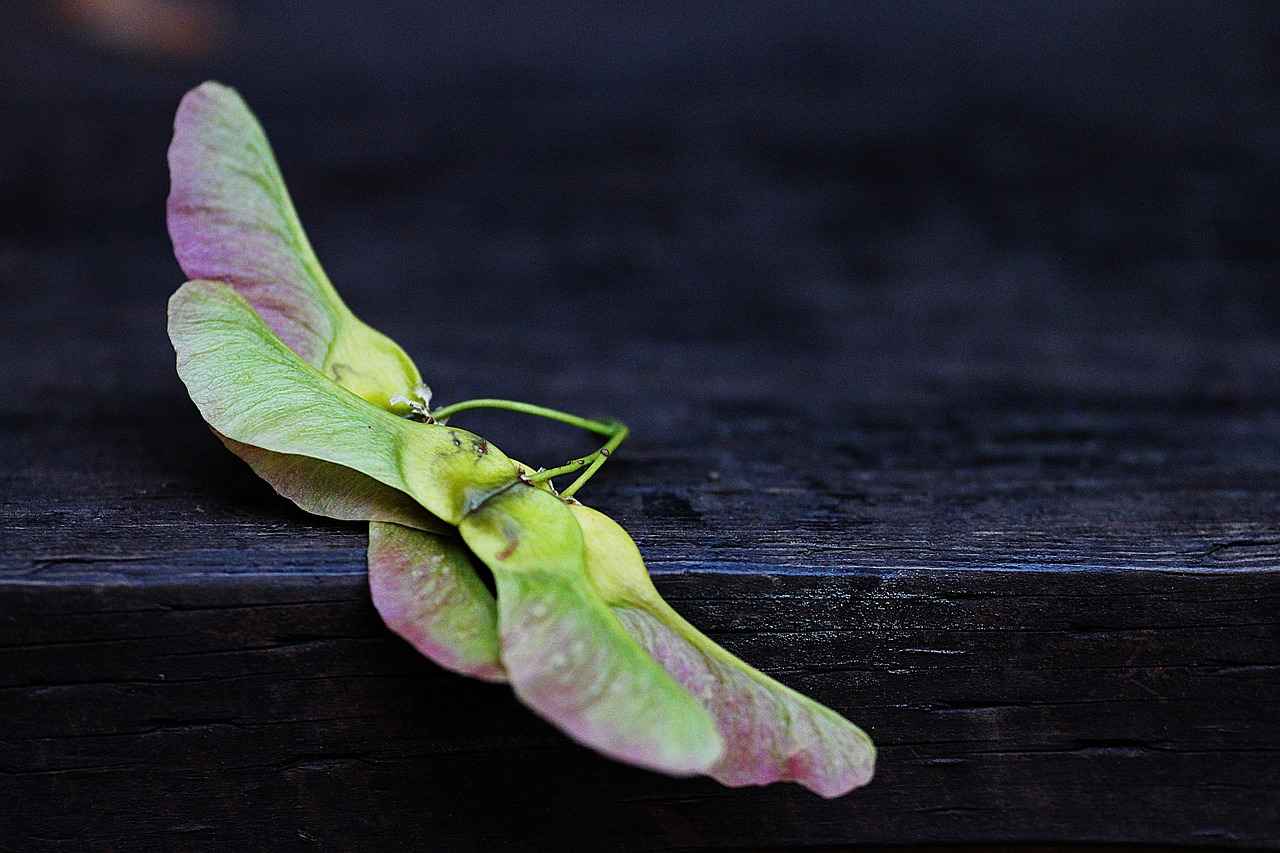
Are There Any Risks Associated with Sprouted Chia Seeds?
While sprouted chia seeds are celebrated for their enhanced nutritional benefits, it is essential to consider potential risks associated with their consumption. Understanding these risks can help you enjoy the advantages of sprouted chia seeds while minimizing any health concerns.
One of the primary concerns with sprouted chia seeds is the risk of bacterial contamination. Improper sprouting conditions can create an environment conducive to the growth of harmful bacteria such as Salmonella and Escherichia coli. These bacteria can lead to foodborne illnesses, which may cause symptoms like nausea, vomiting, and diarrhea.
To mitigate these risks, it is crucial to follow best practices for safe sprouting:
- Use Clean Equipment: Ensure that all containers and utensils are thoroughly cleaned and sanitized before use.
- Soak and Rinse: Soak chia seeds in clean water for a few hours, then rinse them thoroughly to remove any potential contaminants.
- Monitor Conditions: Keep the sprouting seeds in a cool, dark place, and ensure proper airflow to prevent mold growth.
- Consume Promptly: Eat the sprouted seeds within a few days to ensure freshness and minimize the risk of bacterial growth.
Another risk associated with sprouted chia seeds is the possibility of allergic reactions. Although rare, some individuals may experience sensitivities to chia seeds, which could manifest as skin rashes, gastrointestinal discomfort, or respiratory issues.
If you are new to consuming chia seeds, it is advisable to start with a small amount to monitor your body’s response. If you notice any adverse effects, discontinue use and consult a healthcare professional. Additionally, individuals with known allergies to other seeds or nuts should exercise caution when trying chia seeds for the first time.
Chia seeds, including their sprouted forms, are high in omega-3 fatty acids and fiber, which can affect blood sugar levels and blood clotting. If you are on medications for diabetes or blood thinners, it is important to consult your healthcare provider before adding sprouted chia seeds to your diet. This is to ensure that they do not interfere with your medications or exacerbate any underlying health conditions.
In summary, while sprouted chia seeds offer numerous health benefits, it is essential to be aware of the potential risks associated with their consumption. By following proper sprouting techniques and being mindful of individual sensitivities, you can safely enjoy the nutritional advantages of these seeds. Always consult with a healthcare professional if you have any concerns regarding allergies or medication interactions.
Contamination Risks in Sprouted Seeds
Sprouted seeds, including chia, are celebrated for their enhanced nutritional profile and health benefits. However, improper sprouting can lead to bacterial contamination, posing health risks that should not be overlooked. This section discusses the critical best practices for safe sprouting, ensuring that you can enjoy the benefits of sprouted chia seeds without compromising your health.
Understanding Bacterial Contamination
Bacterial contamination occurs when harmful bacteria, such as Salmonella or E. coli, proliferate in food products. These bacteria can thrive in warm, moist environments, making improperly sprouted seeds a potential breeding ground for pathogens. It is essential to understand how to mitigate these risks during the sprouting process.
- Use Clean Equipment: Always start with clean utensils, jars, and sprouting trays. This minimizes the risk of introducing harmful bacteria into your sprouting environment.
- Rinse Thoroughly: Rinse your chia seeds under running water before soaking them. This step helps to remove any surface bacteria that may be present.
- Soak Properly: Soaking seeds for the right duration is crucial. For chia seeds, a soaking time of 2-4 hours is generally recommended. Avoid extended soaking, which can lead to fermentation and bacterial growth.
- Maintain Optimal Conditions: Keep your sprouting seeds in a cool, dark place. Excessive heat can encourage bacterial growth, so ensure that the temperature remains stable.
- Rinse and Drain Regularly: After soaking, rinse the seeds every 8-12 hours and drain well. This practice helps to keep the seeds moist without creating an environment conducive to bacterial growth.
- Monitor for Odors: If you notice any off-putting smells during the sprouting process, it may indicate spoilage. Discard any seeds that emit unusual odors.
Signs of Contamination
Being aware of the signs of contamination can help you avoid health issues. Look out for:
- Unusual Smells: A sour or rotten smell is a clear indicator that the seeds may be contaminated.
- Discoloration: If the seeds change color or develop spots, this could be a sign of mold or bacterial growth.
- Texture Changes: Slimy or overly mushy seeds should be discarded, as they may harbor harmful bacteria.
Storage Best Practices
Once your chia seeds are sprouted, proper storage is vital to prevent contamination. Store sprouted seeds in the refrigerator in a clean, airtight container. Consume them within a week for optimal freshness and safety.
Conclusion
By following these best practices for safe sprouting, you can enjoy the numerous health benefits of sprouted chia seeds while minimizing the risk of bacterial contamination. Always prioritize hygiene and monitor your sprouting process closely to ensure a safe and nutritious addition to your diet.
Allergic Reactions and Sensitivities
Chia seeds have gained immense popularity due to their numerous health benefits, but it is important to recognize that some individuals may experience allergic reactions when consuming them. This section will delve into potential sensitivities associated with chia seeds, particularly sprouted chia seeds, and provide guidance on how to identify and manage these reactions.
Allergic reactions to chia seeds can manifest in various ways. Common symptoms may include:
- Skin Reactions: Hives, rashes, or eczema can occur after consumption.
- Gastrointestinal Issues: Symptoms such as nausea, vomiting, or diarrhea may arise.
- Respiratory Problems: Some individuals might experience difficulty breathing, wheezing, or nasal congestion.
- Anaphylaxis: In rare cases, a severe allergic reaction can occur, requiring immediate medical attention.
Individuals with a history of food allergies are at a higher risk for developing sensitivities to chia seeds. Additionally, those allergic to other seeds, such as sesame or flaxseed, may also be more susceptible. It is crucial for these individuals to exercise caution when introducing chia seeds into their diet, especially in sprouted form.
Identifying an allergy to sprouted chia seeds can be challenging. Here are some steps to help:
- Keep a Food Diary: Documenting what you eat and any symptoms that arise can help identify potential triggers.
- Consult an Allergist: A healthcare professional can perform tests to determine if you have a chia seed allergy.
- Gradual Introduction: If you suspect a sensitivity, introduce sprouted chia seeds slowly into your diet and monitor for any adverse reactions.
If you suspect you are experiencing an allergic reaction to sprouted chia seeds, it is essential to take immediate action:
- Stop Consumption: Cease eating chia seeds immediately.
- Seek Medical Help: If symptoms are severe or if you experience difficulty breathing, call emergency services or visit the nearest hospital.
- Follow Up: Consult with a healthcare provider to discuss your symptoms and explore allergy testing options.
For those who have identified sensitivities but still wish to enjoy the benefits of chia seeds, there are alternatives. Consider substituting chia seeds with other nutrient-rich seeds or grains that do not trigger allergies. Options include:
- Flaxseeds: Rich in omega-3 fatty acids and fiber.
- Hemp Seeds: A great source of protein and essential fatty acids.
- Pumpkin Seeds: Packed with magnesium and zinc.
In summary, while sprouted chia seeds offer numerous health benefits, it is essential to be aware of potential allergic reactions. By understanding the symptoms, risks, and management strategies, individuals can enjoy a safe and nutritious diet.
Frequently Asked Questions
- What are sprouted chia seeds?
Sprouted chia seeds are regular chia seeds that have been soaked and allowed to germinate. This process enhances their nutritional profile, making them easier to digest and packed with more vitamins and minerals.
- How do sprouted chia seeds compare nutritionally to regular chia seeds?
Sprouted chia seeds often have higher concentrations of essential nutrients like vitamins C and B, as well as increased antioxidant levels. This means they can provide better health benefits than their unsprouted counterparts.
- What health benefits do sprouted chia seeds offer?
These seeds can improve digestion, enhance nutrient absorption, and boost energy levels. Their sprouting process makes them more bioavailable, meaning your body can utilize the nutrients more effectively.
- How can I prepare sprouted chia seeds at home?
Preparing sprouted chia seeds is simple! Just soak the seeds in water for a few hours, then drain and rinse them. Place them in a jar or sprouting tray, and rinse them every few hours until they sprout, usually within a couple of days.
- Are there any risks associated with sprouted chia seeds?
Yes, improper sprouting can lead to bacterial contamination. To mitigate this risk, always ensure that your sprouting equipment is clean and follow best practices for safe sprouting.
- Can I be allergic to chia seeds?
Some individuals may experience allergic reactions to chia seeds. If you’re trying them for the first time, start with a small amount to see how your body reacts.
